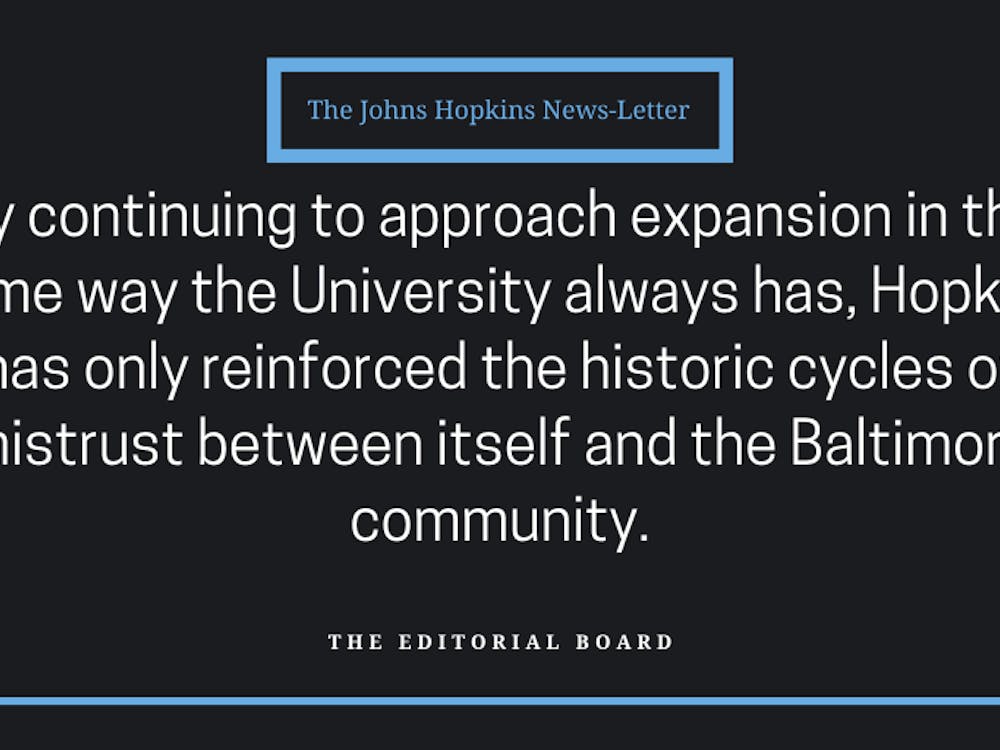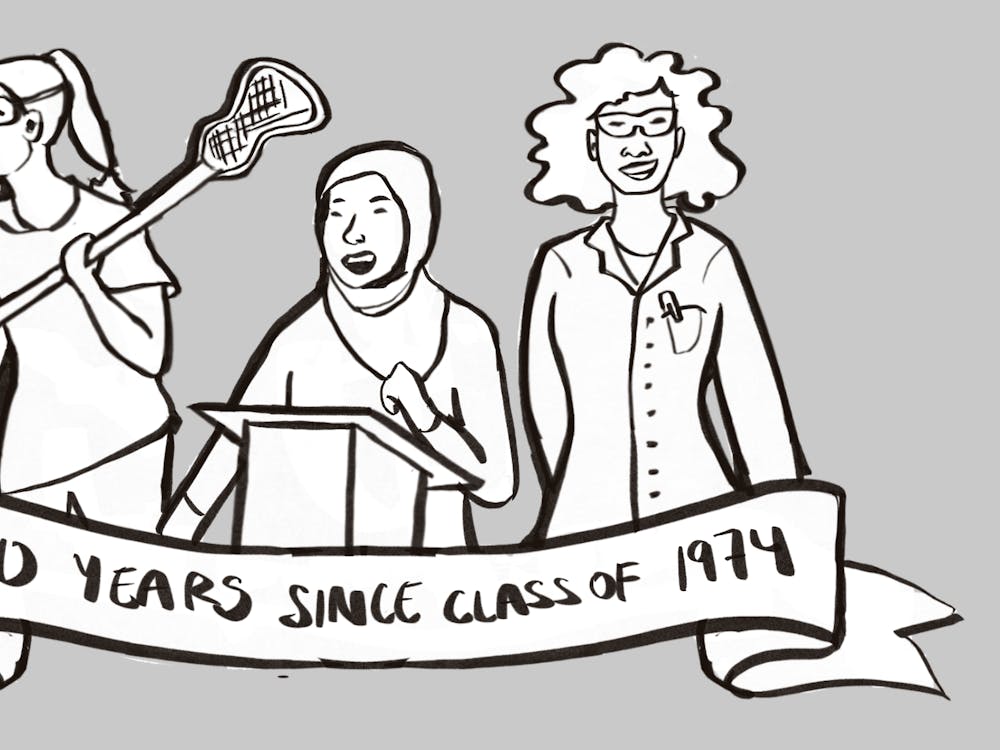Hopkins frequently boasts about its status as “America’s first research university.” It’s said every day by tour guides and splashed across promotional materials. People come away with the impression that finding research positions as an undergraduate is as easy as sending an email. That’s not always the case.
Finding a research position is often a solitary and overwhelming task. The main way that many of us find research is by spending hours looking at faculty lists and emailing professors, hoping for a response.
Currently, only students whose majors require research are given a clear path to such opportunities. Outside of those majors, it can be difficult for students to even know what is available.
Additionally, when popular majors post research opportunities, so many people apply that the positions become incredibly competitive and out of reach for those without prior research experience.
This phenomenon highlights the Catch-22 that many students face. They can’t get a research position without prior experience, but they can’t get experience without a research position.
Additionally, no overarching entity exists to ensure that student researchers are treated fairly. Instead, students work at the discretion of their principal investigators (PIs) or professors.
While we recognize that many students are happy in their positions, if there is ever a conflict no administrative resource exists to help students.
As Hopkins students, many of us are pursuing a vast array of research projects, whether it is analyzing the bone remains at a slave site in southern Maryland or designing medical devices. And those of us who aren’t doing research want to take advantage of these opportunities.
Moreover, publishing or co-authoring a paper on your research can serve as a tangible reflection of all the time and energy put into a project. It can help many students who are interested in applying to graduate school or a professional research position.
Regardless of whether publishing a paper is the end goal, research is an invaluable learning experience for students and fundamentally intertwined with Hopkins as an institution.
Last spring, the University established the Hopkins Office for Undergraduate Research (HOUR) in order to help students find positions. However, we believe HOUR should be more aware of the challenges students face while pursuing research and do more to ease some of the stresses in the process.
The key problem many undergraduates face is simply figuring out what opportunities are out there. HOUR can serve as a connecting point for both students and researchers. Their office can look to Student Employment Services (SES) as a model and create a portal that lists available research positions in the same way that SES lists all the jobs available on campus.
This portal would serve as a two-way street, connecting students with researchers in need of assistants, and would make HOUR a much more beneficial resource. We know that this model works because a few researchers already list opportunities on the SES portal.
We also believe HOUR could help demystify the publication process. Oftentimes, the only resources available to interested students are other students who have already been published.
We acknowledge it may be harder to find research in some field than in others. The fact of the matter is that there are fewer undergraduate research opportunities in the humanities.
Yet, we do not want that fact to dissuade students. We have renowned humanities departments and archival resources like Special Collections where students can do their own original research. HOUR can help connect students to those resources.
We encourage the University and HOUR to continue bridging the gap between students who want to participate in research and the opportunities available to them. Let’s make sure that students have a clear path to the research they came here to do.






















Please note All comments are eligible for publication in The News-Letter.